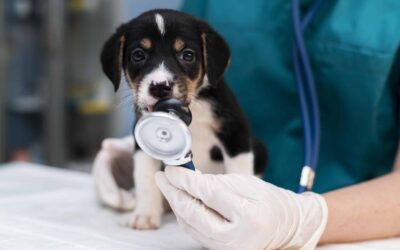Why Does My Dog Keep Throwing Up Yellow Bile?

Seeing your dog vomit, especially yellow bile, can be unsettling. But don’t panic. While it’s always tough to see our furry friends not feeling their best, sometimes vomiting is your dog’s natural way of dealing with a minor stomach issue. Understanding what yellow bile means and knowing when to check in with your vet can help keep your pup happy and healthy.
Here’s a simple guide to help you make sense of yellow bile vomiting and what you can do to support your dog.
What Is Vomiting and Why Does It Happen?
Vomiting is your dog’s way of clearing their stomach, usually in response to something irritating or upsetting their digestive system. It’s different from regurgitation, which happens without much effort and usually involves undigested food. Vomiting, on the other hand, is more active and involves those heaving motions.
If your dog throws up every now and then, it’s usually nothing to worry about. However, if vomiting becomes frequent, or if it includes yellow bile, it might be time to dig a little deeper.
What Does Yellow Bile Look Like And Why Is It There?
Yellow bile looks like a bright, yellowish liquid and may even appear foamy. It’s produced in the liver and helps break down fats during digestion. If your dog throws up yellow bile, it often means their stomach is empty, and there’s nothing else to bring up.
This can happen if your dog goes too long between meals, but there are other reasons, too, some of which may need veterinary attention.
Common Reasons Dogs Vomit Yellow Bile
If your dog tends to vomit yellow bile or frothy liquid early in the morning before breakfast, there’s a chance they could be dealing with something known as bilious vomiting syndrome (BVS). This usually happens when a dog’s stomach is empty for too long, allowing digestive fluids like bile to irritate the lining.
As a veterinarian technician Lauren Mick, LVT stated in the PetMD article: “Dogs with BVS may show obvious signs of nausea, especially first thing in the morning. Nausea in dogs often manifests as:
- Lip-smacking
- Drooling
- Panting
- Reduced interest in food
For some dogs, it’s thought that the overnight fasting period between dinner and breakfast can result in intestinal fluid flowing backward into their stomach. This can lead to irritation, nausea, and your dog vomiting yellow.
Although BVS is not typically life-threatening, talk to your veterinarian to rule out other causes of vomiting in your pet, as some can be serious. The vet can recommend testing and treatment that’s right for your dog.”
- Eating Items They Shouldn’t: Dogs love to explore the world with their mouths—sometimes a bit too much. Eating grass, garbage, or spoiled food can trigger vomiting, including bile.
- Digestive Sensitivities or Illness: Conditions like gastritis, inflammatory bowel disease, or pancreatitis can cause bile to back up into the stomach. Other symptoms, such as diarrhea or fatigue, may also accompany these conditions.
- Parasites or Infections: Vomiting, along with symptoms such as weight loss, appetite changes, or lethargy, could indicate a more serious condition, like parasites or an infection.
- Liver or Pancreatic Problems: Issues with these organs can affect bile flow and may require a vet’s diagnosis through bloodwork or imaging.
Other Signs to Watch For
Yellow bile vomiting might not always happen on its own. Keep an eye out for other signs that could point to a larger issue:
- Tiredness or Low Energy: If your normally peppy pup seems unusually tired or weak, it’s a good idea to call your vet.
- Diarrhea: Vomiting plus diarrhea can quickly lead to dehydration. Make sure your dog has access to fresh water and monitor their condition closely.
- Loss of Appetite: A dog that isn’t eating like usual may be feeling nauseous or dealing with something more serious.
- Signs of Discomfort: A tense belly or whining when touched may indicate abdominal pain, which a professional should check.
When to Call the Vet
Sometimes, vomiting is an isolated instance, but other times, it’s your dog’s way of saying they need help. Here’s when it’s best to reach out to your vet:
- If vomiting lasts more than 24 hours, especially if bile is involved
- If other symptoms show up, like diarrhea, fever, or low energy
- If your dog has an ongoing health condition, like kidney disease or diabetes
- If your pup is very young, a senior, or very small, as they’re more prone to dehydration and complications
Easy Ways to Help Prevent Vomiting
While not all vomiting can be avoided, some simple changes can make a big difference:
- Feed Smaller Meals More Often: This helps keep the stomach from going too long without food and can prevent bile build-up.
- Choose a High-Quality Diet: Stick with food that suits your dog’s digestive system. Avoid fatty scraps, spicy leftovers, or sudden changes in their diet.
- Keep Their Space Safe: Make sure your dog doesn’t have access to trash, toxic plants, or household items that could make them sick.
- Stay on Top of Vet Visits: Regular check-ups allow your vet to catch small issues before they become major problems. Don’t skip parasite prevention and vaccinations, either!
How Can Pet Insurance Help You if Your Dog Needs Treatment?
Pet insurance can be a valuable tool in managing the costs of treating a dog’s veterinary expenses. By having a pet insurance policy in place, you can have peace of mind knowing that you can provide medical care for your furry companion without worrying about the financial burden. Pet insurance can help cover the costs of veterinary consultations, diagnostic tests, medications, and even specialized treatments if required.
Reimbursement
This method is the most common for pet insurance companies. You pay out of pocket for the veterinarian bill, and then the insurance company reimburses you for what’s covered under the insurance plan. The steps look like this.
- You pay the vet bill after your dog’s visit.
- You fill out the pet insurance claim form.
- Submit the claim form and other required documentation to the insurer.
- After the claim is approved, you will be reimbursed for eligible expenses.
What Does Odie Pet Insurance Cover?
Pet insurance covers various veterinary expenses, providing financial protection and peace of mind for pet owners. Here are the details of the coverage options offered by Odie Pet Insurance:
Illness & Injury Plan
The Illness & Injury Plan is an all-inclusive insurance plan designed to cover a wide range of medical needs for your pet. This plan includes comprehensive coverage for various illnesses, injuries, and veterinary services. Some of the covered items include:
- Veterinary exams and consultations
- Diagnostics (e.g., X-rays, lab tests)
- Prescribed medications
- Surgeries and hospitalization
- Rehabilitation, acupuncture, or chiropractic treatments
- Medically necessary supplies
- Euthanasia and cremation
The Wellness Plan
The Wellness Plan is a monthly membership that focuses on preventive care and covers routine veterinary services.
- Provides reimbursements for routine care items such as wellness visits (exams and vaccines), testing and parasite prevention, dental cleanings and at-home dental care, vitamins, supplements, and more.
- Through Odie’s partnership with Petivity, a leader in smart pet products and proactive care, Wellness Plan members can also receive reimbursements for Petivity devices and health kits, as well as eligible Purina food and supplements.
- Total reimbursement up to $700 per year.



